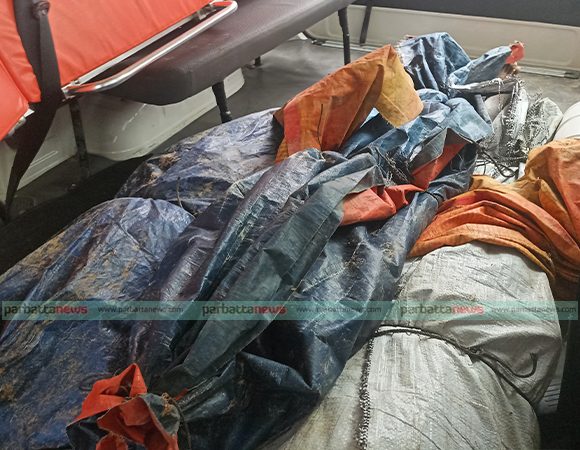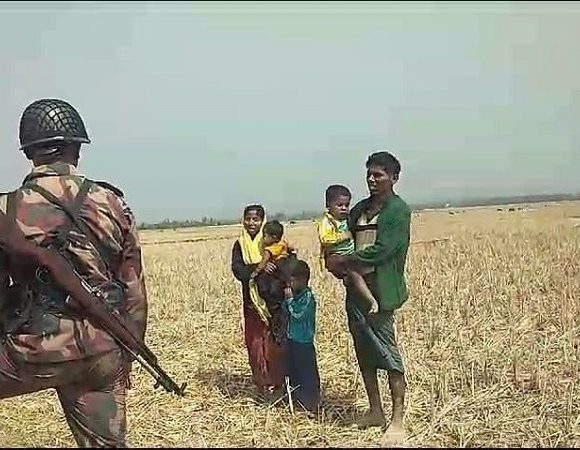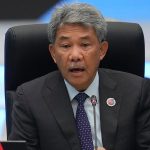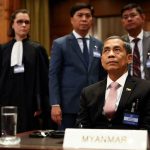Arakan Army holds water festival 10km inside Bangladesh
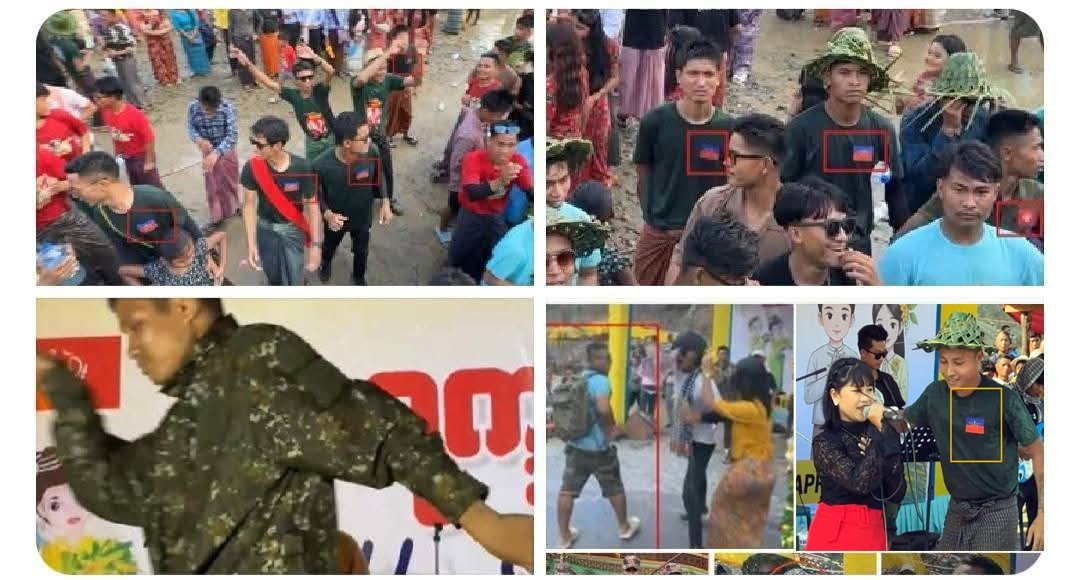
Myanmar’s armed rebel group, the Arakan Army, crossed nearly 10 kilometres into Bangladesh’s Bandarban district and organised a water festival, raising concerns over sovereignty and national security.
The two-day event, held on April 16–17 in the Remakri Mukh area of Thanchi upazila, reportedly featured armed Arakan Army members performing in uniform, while local political leaders, public representatives, and community members took part.
Border Guard Bangladesh (BGB) personnel were present at the scene but did not intervene, according to local sources and widely circulated footage on social media. BGB later said its members had been deployed “to maintain national security and peace.”

Senior Arakan Army figures, including ULA commander Lawre (locally known as Kukhai Rakhine), ULA leader Mongthuihla Marma, and several officers, were seen participating. The group shared videos of the event on its official social media channels.
From the Bangladesh side, Thanchi upazila BNP and district council member Khamlai Mro, Hill District Council member Muiseithui Marma Roni, and several union leaders were reportedly present. An estimated 600–700 people, including members of the Marma community and Arakan Army supporters, attended the event.
The festival, titled the “Arakan Water Festival,” featured music and dance performances, reportedly funded and supervised by the Arakan Army and its political wing, the United League of Arakan (ULA).
During the event, Arakan Army representatives called for unity with local communities, stating the festival was made possible through their cooperation. Some speakers described it as a symbol of regained identity and political solidarity.
Analysts say the incident represents a serious breach of Bangladesh’s territorial sovereignty and signals growing ideological alignment between the rebel group and parts of the hill community.
Footage showed participants wearing custom T-shirts bearing the phrase “Member Family” in Bangla, suggesting organised participation by local political supporters.
“This is not an isolated cultural event,” said a regional security expert who requested anonymity. “It’s a symbolic and strategic assertion of control — a sovereignty rehearsal on Bangladeshi soil.”
Another analyst said the Arakan Army appears to be seeking a military, cultural, and political foothold in the Chittagong Hill Tracts (CHT), which could violate international norms and threaten Bangladesh’s internal stability.
Brigadier General Yasir Jahan Hossain, head of intelligence at BGB, told reporters that authorities had prior intelligence indicating that Arakan Army members might attend the Baisabi festival.
“We increased surveillance accordingly,” he said.
Referring to viral footage, Hossain noted that a woman seen in the video was wearing sandals and printed trousers that did not match Arakan Army uniforms.
“The event was organised by local union officials,” he said, adding that, to his knowledge, Arakan Army members did not formally participate. Intelligence officials are still investigating the matter.
Bandarban Superintendent of Police Md Shahidullah Kawsar also confirmed that law enforcement is investigating reports of Arakan Army involvement. “It’s a remote area, and gathering verifiable information will take time,” he said.
The Remakri Mukh area lies approximately 10 km inside Bangladesh’s recognised international border. It is not a disputed zone and remains under formal state jurisdiction.
Rohingya leaders expressed concern over the event. “Those who committed genocide against us are now celebrating with weapons in Bangladesh while the administration remains silent,” said one Rohingya representative, requesting anonymity.
Security experts warn that failure to act swiftly could lead to the emergence of a separatist armed network within Bangladesh. They describe the Remakri event as a potential turning point in the post-independence history of armed insurgency in the region.


